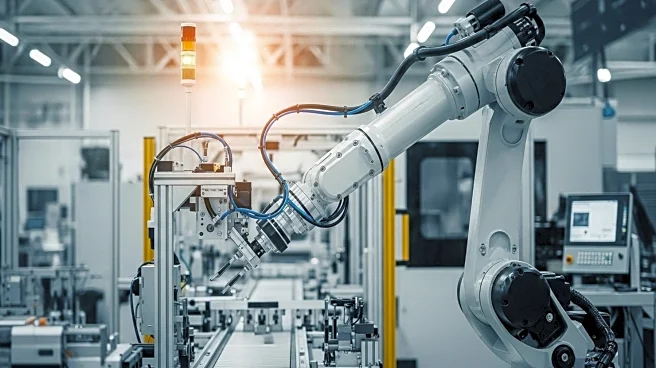What's Happening?
The manufacturing industry is experiencing a significant challenge as seasoned workers retire, leading to a loss of critical expertise and operational standards. In June 2025, the sector lost 7,000 jobs, with 415,000 positions remaining unfilled across the U.S. This skills shortage is exacerbated by the difficulty in attracting and retaining employees with the necessary skill sets, as 65% of manufacturers identify this as a top challenge. The State of Smart Manufacturing report highlights the lack of skilled workers as a major barrier to competition. Manufacturers are urged to implement systems for capturing and transferring institutional knowledge to mitigate these impacts.
Why It's Important?
The retirement of experienced workers in manufacturing poses a threat to production quality and operational efficiency. Without proper knowledge transfer systems, the expertise of long-time employees is lost, leading to increased operational delays and reduced production capacity. This situation affects internal processes and can result in productivity and quality issues. Manufacturers must address these challenges by implementing smart technology and connected worker systems to improve training and preserve institutional knowledge. This approach is crucial for maintaining operational excellence and ensuring the future success of the industry.
What's Next?
Manufacturers are encouraged to act swiftly to capture and digitize the knowledge of experienced workers before it is lost. By empowering employees with real-time feedback, detailed digitized work instructions, and embedding quality into daily operations, companies can safeguard their human capital. This strategy will help bridge skills gaps, improve employee retention, and enhance the overall employee experience. The successful preservation of human capital will define the future of the manufacturing industry.










